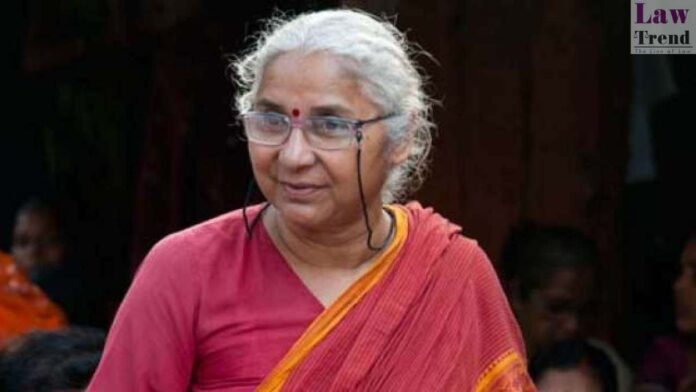The Supreme Court on Monday upheld the conviction of Narmada Bachao Andolan leader Medha Patkar in a 25-year-old defamation case filed by Delhi Lieutenant Governor V K Saxena, bringing finality to a protracted legal battle dating back to 2000.
A bench of Justices M M Sundresh and N Kotiswar Singh declined to interfere with the Delhi High Court’s July 29 order affirming Patkar’s conviction and her release on “probation of good conduct.” However, the apex court granted partial relief by setting aside the penalty imposed on her and clarifying that the supervision order would not be enforced.
The case stems from a press release issued by Patkar on November 24, 2000, during Saxena’s tenure as president of the National Council of Civil Liberties, an NGO in Gujarat. In his complaint, Saxena alleged that Patkar’s statements accused him of “mortgaging” the people of Gujarat and their resources to foreign interests, which, according to the trial court, amounted to a direct attack on his integrity and public service.
The magisterial court, in its July 1, 2024 verdict, found the 70-year-old activist guilty under Section 500 of the Indian Penal Code (defamation), holding that her remarks were “per se defamatory” and “crafted to incite negative perceptions” about Saxena. She was sentenced to five months’ simple imprisonment and fined ₹10 lakh.
On April 2, 2025, the sessions court upheld the conviction, dismissing her appeal and observing that Patkar was “rightly convicted” and there was “no substance” in her challenge. The court, however, released her on probation upon furnishing a ₹25,000 bond, with a precondition to deposit ₹1 lakh as fine.
The Delhi High Court later upheld both the conviction and the sentence but relaxed the probation condition requiring her to appear before the trial court every three months. It allowed appearances once every three years, either in person, via videoconferencing, or through a legal representative.
In its ruling, the high court noted that there was no illegality or material irregularity in the trial court’s findings, and Patkar had failed to demonstrate any procedural defect or legal error resulting in a miscarriage of justice.




